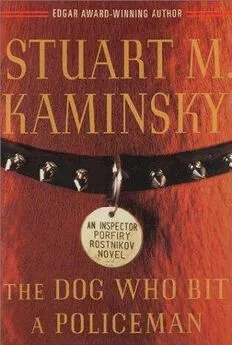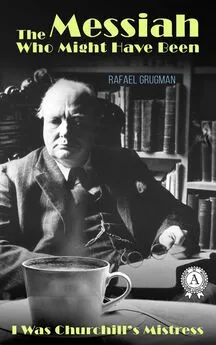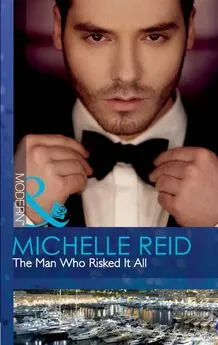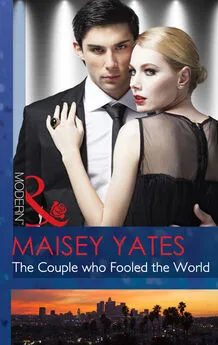Stuart Kaminsky - The Dog Who Bit a Policeman
- Название:The Dog Who Bit a Policeman
- Автор:
- Жанр:
- Издательство:неизвестно
- Год:неизвестен
- ISBN:нет данных
- Рейтинг:
- Избранное:Добавить в избранное
-
Отзывы:
-
Ваша оценка:
Stuart Kaminsky - The Dog Who Bit a Policeman краткое содержание
The Dog Who Bit a Policeman - читать онлайн бесплатно полную версию (весь текст целиком)
Интервал:
Закладка:
“You checked the room for. .?” he began.
“There are no listening devices,” she said. “I have had a great deal of time to check carefully. You can speak. But I would not trust the phone.”
He nodded, blinked his eyes against the pain of the morning light, and began to speak as Elena turned on the recorder.
“I took a cab to a house, a private home with an iron gate, on Mira Prospekt beyond the Outer Ring Circle near the Botanical Garden. There were only a few cars parked in the driveway beyond the gate, which was opened for the cab by two big men who wore weapons under their jackets, after I showed the napkin with the address on it.
“I paid the cab driver, who tried to cheat me because he thought I was a Ukrainian. I haggled and paid more than I had to but less than he asked for. I got out of the cab, and the two armed men let the cab back out through the gate. The parked cars were expensive; there was even a Rolls-Royce. The door to the house opened as I walked toward it, and a slim, well-dressed blond man greeted me and let me pass.
“I entered the house, heard noises from somewhere inside. The blond man told me that I was a little late and led me to a door, which he opened, increasing the noise. We went down a flight of stairs and I found myself in a big, high-ceilinged room with a wire-fenced square in the middle surrounded by about forty people, all men, standing. Two dogs were inside the wire fence.
“The spectators placed bets with men who walked among them. The men who took the bets all wore blue blazers with a golden bear emblazoned on the breast pocket. The fight that was going on was almost over. A big black-and-white mongrel was bleeding but about to triumph over an equally large white German shepherd, which had lost its right ear in the battle and had lost a great deal of blood from numerous bites. It was disgusting. It was fascinating. The shepherd stood bravely on wobbling legs, showing its teeth in a final brave stance. The mongrel attacked with a growl and the fight was over.
“A man appeared at my side. We had seen him in the restaurant earlier. He said his name was Boris Osipov. He is tall, wears good clothes, well built, dark hair, false smile and, I think, false teeth, though he can’t be more than my age or a little older.”
“I’ll see what I can find out about him,” Elena said. “Go on.”
Sasha touched his stubbly morning beard with the back of his hand and with the same hand attempted to tame his hair. His hair refused to cooperate.
“Over the noise of bettors arguing with each other about the merits of the dogs in the next fight, Boris explained that bets could be made only with the house men in the blue blazers. Side and private bets were not permitted. Drinks were available at slightly more than a reasonable price. I asked for a Scotch on the rocks. It was the first of several. Boris raised a hand. A waiter appeared, took the drink order. He was back with it almost immediately. I reached for my wallet. Boris stopped me and said the first one was on him. I thanked him. Two men in jeans and black shirts removed the dying German shepherd and led the victor off to have his wounds tended.
“ ‘You know dogs?’ asked Boris.
“ ‘A bit,’ I said.
“ ‘What do you say about these two?’ Two fresh dogs were led into the fenced square. One, tall, black and brown, a Doberman, was straining toward the other dog, growling, showing its teeth.
The other dog regarded the Doberman, showing no reaction. The second dog, smaller than the Doberman, was, by his look, part terrier, part wolfhound, an odd-looking creature who seemed neither thirsting for blood nor afraid. He showed dignity.
“ ‘I’ll take that one,’ I said, pointing at the part wolfhound as the Doberman strained at the short leash and began to bark.
“ ‘How much?’ asked Boris, motioning for one of the men in a blue blazer, who came immediately.
“ ‘Two hundred American dollars,’ I said. I got out my wallet and gave the man two hundred dollars.”
“You bet two hundred dollars?” Elena said incredulously.
“What choice did I have? I did bet more as the evening progressed. Sometimes odds were given. Sometimes there were no odds. Sometimes I won. Sometimes I lost. You needn’t worry. I wound up six hundred dollars ahead for the night.”
“Go on,” Elena said with a sigh.
“The Doberman was killed, quickly. After two more fights, the main event of the night was a pit bull and a rottweiler. I bet and lost. The noise in the room was worse than a soccer match. I drank. Boris asked me questions. I told him I had a fighting pit bull back in Kiev, that I had my own growing dogfighting business. He pumped me and I dropped the name of Alexander Chernov. He said he knew Chernov. I shrugged. I’m sure he has called Chernov by now to check on me.”
Alexander Chernov had been a wheeler-dealer in the black market in Kiev during the days of the Soviet Union. When the Union ended and the underground black market became an overground but still illegal market for goods, food, and services, Chernov had made even more money. He had, however, made the mistake of bribing a Kiev police officer, only to discover-to his amaze-ment-that the officer was completely honest and incorruptible.
Chernov had not believed such a creature existed. The officer had taped their conversations, arrested Chernov with plenty of evidence, and brought him in to face a great deal of prison time. The officer’s superior, who was not quite as honest as the man who had trapped Chernov, had struck a deal with Chernov. Chernov could continue to operate in exchange for a regular payment to the official. In addition, Chernov might be called upon to perform certain acts, tell certain lies, betray certain friends. Chernov had readily agreed. This time his assignment had been simple. If called by anyone in Moscow about a certain Dmitri Kolk, he was to say that Kolk was well known in Kiev for his dogs, and that the young man had made a great deal of money in a variety of ventures, including illegal passports and drugs. Even if Sasha were found out, Chernov could claim to have been duped.
“And?” Elena prompted.
“Not much more to tell,” said Sasha, swinging his legs over the side of the bed and feeling quite dizzy from the effort. “I bet, watched, talked to Boris, was introduced to some of his associates.
I told Boris and his friends that I had a dog I was interested in having fight in Moscow. I told him I had other dogs, all great fighters, in Kiev and that I could send for them. Perhaps we could arrange a cooperative venture. Boris said he would call me here.
We drank. I watched animals maimed and killed. I pretended to be excited by it, to enjoy it.”
“And did you?” asked Elena.
“Did I?”
“Enjoy it,” she said. “Were you excited by it?”
“Is this relevant to your report?”
“No,” she said. “I was just curious.”
“Perhaps I did, a bit. I had more to drink than I ever had, but I was careful to keep alert and perhaps the drink made me. . I don’t know.”
Sasha tried to stand and with one hand on the bed managed to do so. He stood on unsteady feet, wearing nothing but his under-pants. Even had he shaved and had no hangover, Elena knew she would not be moved sexually by the sight of her partner. Sasha was not her type, and she knew too much about him to be interested.
She reached over and turned off the tape recorder, watching Sasha stagger toward the bathroom.
“You have anything else to add about your adventure, either on or off the record?” she asked.
“No,” he said, taking another slow step toward the bathroom.
“I picked up your clothes and hung them in the closet,” she went on.
“Thank you,” he said, one hand on the wall next to the bathroom to steady himself.
“Your clothes reek of perfume and the smell of a woman,” she said. “Your jacket has red marks, lipstick.”
“You sound like a wife,” he said, holding his head.
“When you look in the mirror,” Elena said, “you’ll see more lipstick marks on your neck and chest.”
Sasha turned to look at Elena, who sat looking up at him ex-pressionlessly. It had been nearly two in the morning. He had downed several drinks. Boris had taken him to a private room up-stairs, a living room, and introduced him to the woman. He couldn’t even remember her name at the moment, but he did remember that she was young, had very short dark hair and clear white skin, smelled wonderful, was slim but let her cleavage show, and that she had full, erect breasts. She had worn a red strapless dress and. .
it had happened. Boris disappeared. She had led him to a bedroom. His first thought when it was over was AIDS. Things like this had happened to him before, not often. Each time he had felt guilt and fear. He would have to be tested. The woman was either an expensive prostitute who could have any disease, or a tyolki, a gangster’s woman, who could also have a disease.
Sasha looked at Elena.
“Don’t worry,” she said. “Your battle scars will not be in the report.”
“Thank you,” he said, moving into the bathroom and looking at himself in the mirror. It was a horrible sight.
“Why is it so shoomeet, so noisy?” he asked, closing his eyes.
“Did you expect the great Mayor Yuri Luzkov to stop billions of dollars of construction because one man wakes up with a headache?”
“It would be considerate,” said Sasha.
Construction of a new Russia with money that had best not be questioned had begun two years earlier. The change was enormous. Supposedly, the construction had been for the celebration in September of Moscow’s eight hundred fiftieth anniversary, a number in some dispute. The celebration had come and gone and the construction went on and on.
New ornate buildings with stucco facades; massive fake cathedrals; new wrought-iron lampposts that echoed those of a century ago; and two or three floors added to old buildings and the buildings themselves remodeled and sandblasted by workmen in orange overalls. The skyline had already changed and it was due to change even more.
It was not the first time in this century that the face of Moscow had undergone a major change. Lenin, who moved the capital from St. Petersburg to Moscow, had disdained the czarist past and brought on a new era of modern architecture that was supposed to reflect the new Russia. Lenin’s Moscow was a hodgepodge of styles, and the construction was often subpar and crumbling almost before it was completed.
Stalin in the 1930s had a new vision of elaborate and impressive metro stations underground, and imposing and threatening skyscrapers and great statues aboveground. The seven skyscrapers that still tower in the skyline were a Stalin contribution. Monu-ments to who-knew-what. But Mayor Luzkov was planning what he called the “eighth tower,” a pink monster on the grounds of Moscow State University.
Then the Krushchev 1950s brought the construction that resulted in blocks of huge gray apartment buildings.
And now, not the leader of Russia or the Soviet Union, but the mayor of the city, who wanted to replace Yeltsin, had unveiled great plans, none of which would do much to change the housing problem. He planned a third ring circle; more underground park-ing-though only twenty percent of the people of Moscow have cars; a railroad running alongside the new ring road; at least two new subway stations; American-style shopping malls; a new business district called Moskva-Siti, at a cost of over eight billion in American dollars; and the world’s tallest building, the Tower of Russia, which would reach 1,950 feet into the sky.
Читать дальшеИнтервал:
Закладка:










